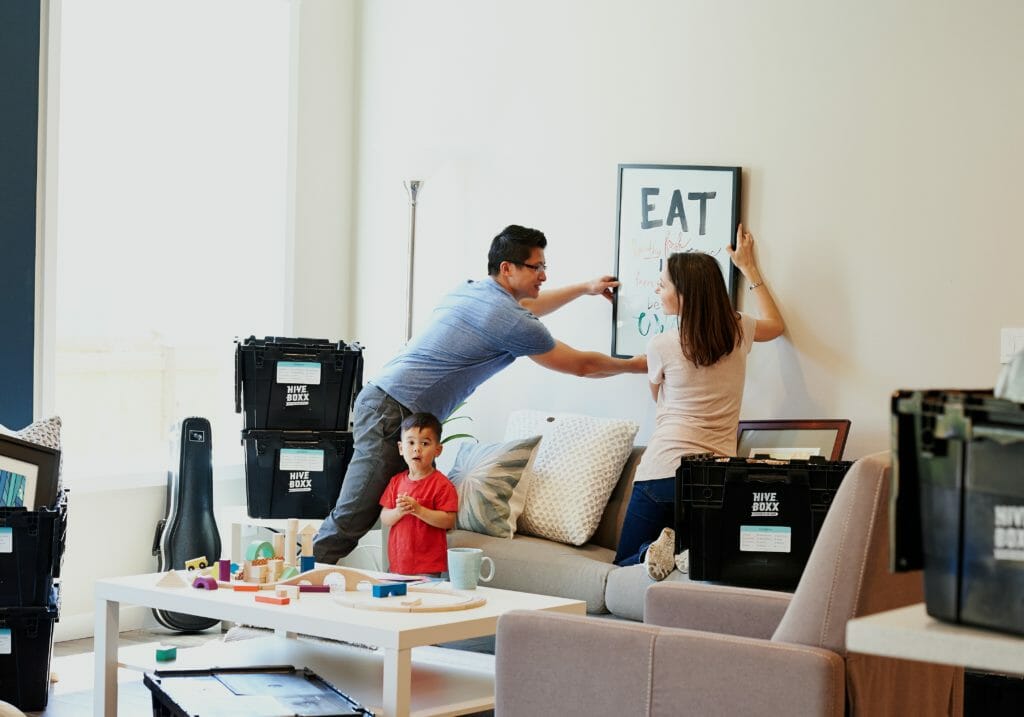Moving is always a stressful process, but COVID-19 has added some additional hurdles for properties and for residents.
This is not the ideal time for a move, but people are still permitted to change homes during the pandemic.
Responsibilities of the condo or HOA
Corporations and associations have a duty to maintain their property, and provide a safe living environment for residents. When trying to figure out how to manage their community and guide owners through this pandemic, condos and HOAs should use credible information from government authorities to make and implement best practices, and recommend strategies to help minimize the spread of COVID-19.
- All non-essential amenities, including gyms, clubhouses, community rooms, and other shared areas should be closed. Elevators and laundry rooms need to continue operating as they are essential to residents
- Residents and guests should be advised to keep a respectful distance from staff and concierge if they need to speak to someone in person
- Management offices should be closed, but residents should be able to call or email management
- Repair work should only be performed if it is essential. By allowing fewer people onto the property, you reduce the chances of a resident contracting the virus
- Sanitize elevator buttons, handrails, handles, and shared workspaces multiple times per day
- Place hand sanitizer and wipes throughout the building, to the extent that supplies are available
- Encourage residents to limit guests as much as possible, particularly those who are symptomatic
When it comes to moving, associations will need to adopt temporary policies. Boards or property managers are encouraged to ask residents to move in or out within a specific timeframe. Any hired movers are also encouraged to take necessary sanitary precautions. Any spaces that the move occupies, including elevators, hallways, and the lobby, should be disinfected after the move has been completed. If someone is moving in, the home needs to be thoroughly cleaned before the move-in date.
Remember, there is a current ban on evictions, so no one can be forced to move because they haven’t paid rent or other fees.
Plan ahead
By sharing temporary move in/move out policies with current and/or future residents, condos and HOAs can better manage moves.
Encourage anyone who is moving to reach out to the board or property manager at least three to four weeks in advance of the move. This way, management can plan to accommodate the event. This is especially important for condo managers. They will likely need to book or confirm a booking for an elevator, ensure the loading dock or moving area is available on the day of the move, and provide instructions about returning unit and mailbox keys.
To minimize social interactions, management can ask residents who are moving out of the building to book an elevator themselves. This can be done using a resident portal or property management software. Our Amenity Bookings feature gives residents the ability to book the day and time slot they require, add notes for administration, and they can even submit deposits online.
If someone is moving out of the building, you will need to decide if and how a move-out inspection will be conducted. Property managers are responsible for ensuring that no significant damage has been made to the unit or to the appliances. Normally, if there is a problem, the owner would be asked to fix it, or the security deposit may not be returned to the renter. However, non-essential repairs are also being discouraged right now so management may need to look at alternative solutions.
The unit will also need to be thoroughly cleaned and sanitized after the resident has moved out. If your cleaning staff will be responsible for cleaning the unit, provide them with instructions, and ensure they have protective equipment.
Communication is key. Make sure everyone has the information they need to complete a safe and successful move.
Practical tips
You can share these helpful tips with residents to help keep them, and others, as safe as possible during their move.
- Practice physical distancing as much as possible. People are discouraged from asking a big group of friends to help them with their move. It usually takes more than one pair of hands to complete a move, so do reach out to one or two people who are not feeling sick for help. Masks are recommended
- If you are sick, delay your move. Don’t risk spreading the virus to others. Speak with your landlord or property manager and let them know what’s happening
- You can still hire movers. Moving companies are considered an essential service in most provinces and states, and these companies are operating with enhanced safety measures. Companies are asking that only one person interact with and instruct the movers, if possible. Keep your distance whenever possible
- If you have hired movers and are feeling unwell before your scheduled move date, call the company and ask to reschedule
- Rental truck companies like U-Haul and Budget are still operating if you are not planning to hire help. Although these companies have strengthened their cleaning routines, you should still wipe down the main touchpoints like the steering wheel, gear shifter and door handles when you first get into the truck
- Boxes are essential moving supplies. You can usually get free boxes from grocery stores, or from a friend, but that’s not advisable right now. Instead, you should buy new boxes from a business that sells moving supplies
- If possible, deep clean and sanitize your new home before you unpack and settle in
- Make sure to have soap, hand sanitizer (with at least 60% alcohol), cleaning solutions and paper towels ready at all times
- Use disinfectant wipes to sanitize high-touch areas like countertops, doorknobs, sinks, the refrigerator, etc.
- You can use disinfectant sprays for areas that can’t be wiped clean. For example, use Lysol on your couches and mattresses
- Use water with a very small amount of bleach to clean tile floors. Use a disinfecting wet mop cloth on hardwood floors
- Don’t forget to disinfect your phone
- And finally, wash your hands often, and avoid touching your face. This can be tricky when you’re moving because of the dirt and sweat. Use your forearm if you must touch your face
Showing a place
Homeowners who want to sell their place are strongly encouraged to wait until after the pandemic is over to show their home, but it’s unlikely that HOAs and condos can enforce a no viewing policy since they probably do not have the authority to enforce such a rule. There may be something in your governing documents that would allow you to make this rule, so check your documents before making any decisions or policies.
Some landlords are giving virtual tours, and are conducting interviews using video conferencing software. This could be a safe and practical alternative, especially if the homeowner lives in a medium or large condo building.
If a showing must take place in person, all parties should wear personal protective equipment, and keep their distance as much as possible.
Conclusion
Though it’s not an ideal time for a move, residents are still allowed to change homes during COVID-19. Boards and property managers can equip residents who are moving with information to help keep them safer, and establish temporary guidelines to help keep their entire community healthy.



